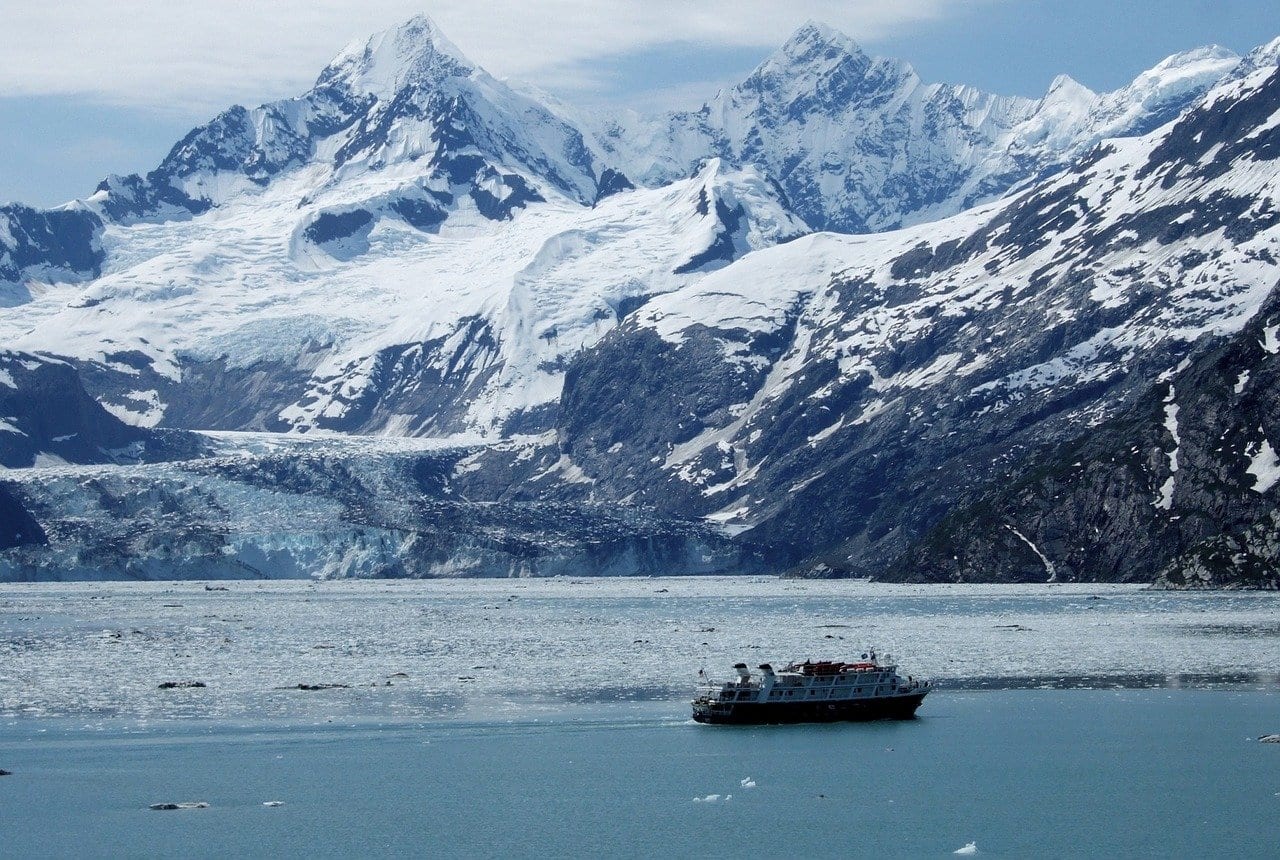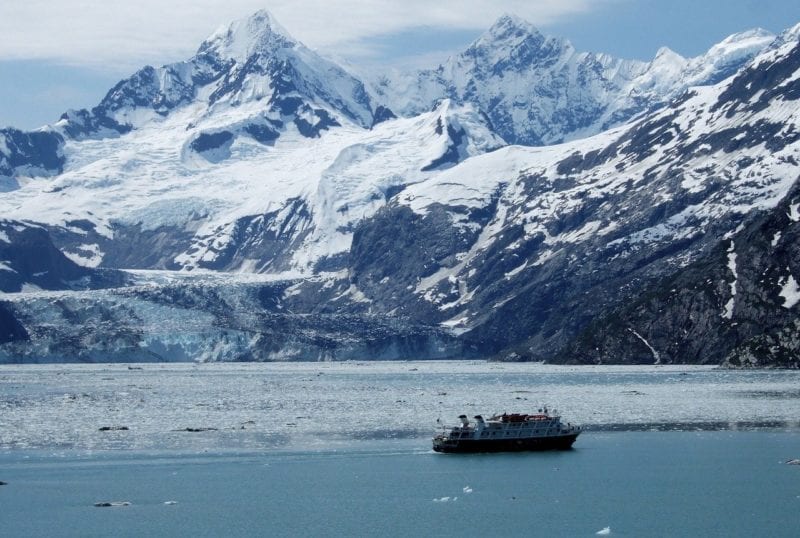Chinese Cruise Ships Look To Steer Clear Of Japan
By Ju-min Park, Hyunjoo Jin and Heekyong Yang SEOUL Nov 21 (Reuters) – Chinese cruise operators are scrambling to avoid Japanese ports as Beijing and Tokyo engage in a diplomatic dispute, which...


The COVID-19 pandemic’s impact on the cruise industry is hitting Alaska harder than another state in the nation, according to a new report by the U.S. Federal Maritime Commission (FMC).
The report, issued by Commissioner Louis Sola, examines the economic impact of COVID-19 on the cruise industry in Alaska, Washington, and Oregon. The impact on Alaska’s economy is perhaps most jarring.
Alaska’s economy rests on three key industries: energy, fishing, and tourism, the FMC said in its report. The last category has been a growth industry for Alaska, with the number of visitors increasing 45% from 1.5 million in 2010 to 2.2 million in 2019.
Losing the entire 2020 cruise season meant missing out on the $1.24 billion in revenue and 22,000 jobs that the cruise industry was estimated to generate this year.
“In 2019, twice as many people than the number who live in the state came to Alaska and took a cruise. With the suspension of the cruise season, the economic activity of 1.3 million was wiped out of the Alaskan economy for the year. Under the best of circumstances and in any other state, there would be no disguising the consequences of losing that much revenue. In Alaska, in the context of the cruise industry, the consequences are greatly exacerbated,” said Commissioner Sola.
According to the FMC, cruise ship operations create unique commercial opportunities for Alaska residents and businesses. Some port facilities and terminals exist solely to support passenger vessels. It also impacts the hotel sector and building, as well as dining, lodging, transportation, and shopping that support the local economy and infrastructure. One difference between Alaska and other states is that in many locations, the cruise industry may be the only economic driver, the FMC report said.
Another economic consequence of the loss of the 2020 Alaska cruise season is the missed direct contribution the cruise companies make to the state. In addition to providing services to tourists, cruise companies operating in Alaska base thousands of crew members in the state. Those seasonal residents pay rent, shop in grocery stores, eat in restaurants, and purchase services. In addition, cruise lines and their subsidiaries, spend close to $300 million in procuring goods and services from Alaska-based companies.
“If a ship does not call, especially at some of the smaller cruise focused ports in Alaska, people do not make money. If there is no cruise ship in port, there is no work for the longshoremen. If there is no cruise ship in port, no one is shopping in local businesses or eating in local restaurants. If there is no cruise ship in port, landside tour companies have no clients. In major metropolitan areas with major seaports, there will more likely be other opportunities for people to pursue while they wait for cruise ships to begin operating again. In many places in Alaska, the cruise business is the local industry. These are cities of hundreds, or a few thousand, residents. The people, businesses, and ports in those locations are facing the unenviable challenge of what to do before next year’s cruise season,” said Commissioner Sola.
The economic impact to municipalities and the state is also significant and not only because of the loss of tax revenues to the general fund. Cruise ships operating in Alaska waters, and passengers aboard those vessels, are subject to a variety of fees that finance necessary cruise industry infrastructure as well as environmental conservation efforts that protect areas in which the ships operate. The Commercial Vessel Passenger Tax, the Commercial Passenger Vessel Environmental Compliance Program, and the Ocean Ranger Program, all rely on fee payments tied directly to cruise companies and cruise passengers.
It’s not just the major cruise lines either. Smaller operators that are U.S.-based companies or who sail U.S. flagged ships also serve the Alaska market.
The nature of the Alaska cruise industry ties that state to Washington and Oregon. he Port of Seattle is the homeport for many cruise ships and more than one million individuals fly in and out of the Seattle-Tacoma International Airport to take cruise voyages. The hotel, ground transportation, and tourism sectors have all been affected by the cessation of cruise operations in general and the suspension of the Alaska season in particular. Similarly, the Port of Astoria, Oregon has weathered an economic impact as a result of lost cruise business.
“The Alaska cruise season is short, lasting approximately only five months. While the 2020 season is lost, there is hope for the 2021 season. Companies and port authorities are focused on the steps necessary to safely return to full operations and to provide cruise customers with the assurances necessary to be confident again boarding a vessel. Better than most, the men and women who are government officials, port executives, and tourism leaders know what is at stake and are doing what they must to limit their losses and welcome back cruise passengers,” said Commissioner Sola.

Sign up for gCaptain’s newsletter and never miss an update

Subscribe to gCaptain Daily and stay informed with the latest global maritime and offshore news
Essential news coupled with the finest maritime content sourced from across the globe.
Sign Up